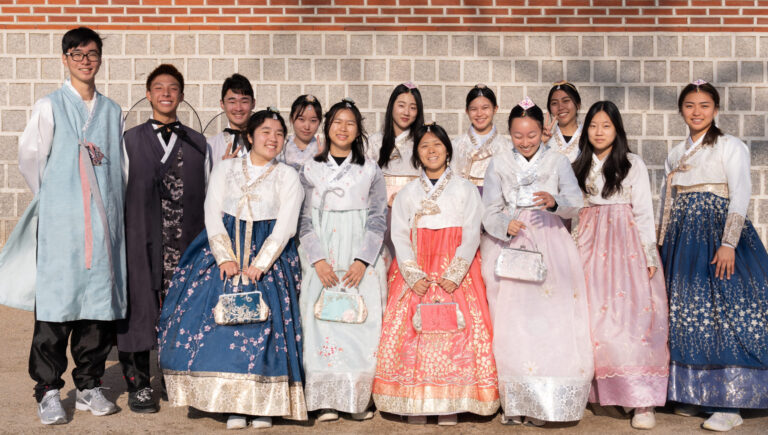We all know that mothers and daughters have a special relationship, but what happens when they fight?
High school college counselor Tara Gruspe has a college age daughter, Kainani, who graduated from HBA. Gruspe says that their relationship has improved since Kainani left for college. When Kainani was still a high schooler, Gruspe said they had a lot more to fight about. “Any time we went shopping together, we ended up fighting about something. I would bring up her attitude of entitlement and try to help her to see all the things she should be grateful for and we would just get frustrated with each other,” Gruspe said.
Kainani is now in her senior year of college and Gruspe has noticed a change in her attitude. “She is extremely grateful for the opportunities afforded to her and does not take the little or big things for granted,” she said.
When Kainani first left for college, Gruspe had a hard time getting used to her being away. But Gruspe says she has since settled into a better perspective. “There is so much I appreciate about my daughter, Kainani. She is spontaneous, adventurous, fun to be around, chill, artistic, creative, caring, family-oriented, and silly. Although seeing her forge her own path has been painful for me at times, I am so proud of the young woman she has become,” she said.
Senior TJ Halemano-Reed said that she hardly fights with her mom, and when she does, it is often over very small things. “We probably fight about who’s picking who up and driving because I have to take her to work now that I drive. We argue about leaving the house and hurrying up because I don’t like being late to school and not getting parking on the side street,” she said.
Halemano-Reed says that she sometimes feels like the more mature one in their relationship because her mom is young and a lot more hot-headed than her. “I think my mom just doesn’t understand that I don’t care. Like if it’s something so small, I’m not going to argue about it because it’s a waste of time. I think sometimes she just pushes it more and it just irritates me so I don’t just answer her text back,” she said.

Freshman Abigail Sumida is the oldest child and has a younger sister in fifth grade. “My mom and I argue about the little things like who’s right about something or how to do something or sometimes how I don’t listen to her.,” Sumida said.
When Sumida and her mom fight, the rest of the family tries to stay out of it. She said, “They let us resolve it respectfully.” Sumida appreciates how her mom is her encourager. “I love that she’s supportive most of the time when I do things like play volleyball or get good grades, and she encourages me to do well in everything. I also really appreciate the chance to attend HBA, where I have grown and learned a lot,” she said. Her mom, Betty Sumida is proud of how her daughter has grown. “I love and appreciate that she is independent and responsible in school and other extracurricular activities, so that I don’t have to follow up or remind her to do those things,” she said.
Freshmen Cori Matsumoto is also an older sibling and has a brother in sixth grade at HBA. The issue that makes Matsumoto the most frustrated with her mom is when she feels her mom does not understand her. However, Matsumoto recognizes that conflict with her mom may be related to her mom’s love for her. Jan Matsumoto, readily shares a list of things she appreciates about her daughter: “She’s positive and tries to make her surroundings positive. Always making goals for herself, never looking back and seeing her last accomplishment as the end of the journey but rather the beginning of a new journey with new goals. She’s family-oriented, for the most part. But needs to be reminded once in a while, like most teenagers I’m sure.”
When it comes to the unique reasons why mothers and daughters fight, a HuffPost contributor wrote that “the answers I hear all-too often to these questions is that mothers and daughters fight because their relationship is highly complicated, or their personalities are too different or too similar, or it is hormones that are making mothers and daughters angry with each other. Yes, I still hear the age-old sexism of hormones being used to blame women for being angry. And from colleagues I hear how mental health diagnoses are used to explain why mothers and daughters fight.”
No matter the underlying reasons why mothers and daughters fight, Cori Matsumoto trusts her mom has the best intentions. “ When my mom gets mad at me it shows that she cares and she wants the best for me. If she didn’t care she wouldn’t scold me,” she explained.







